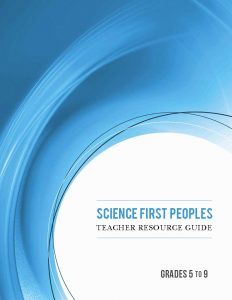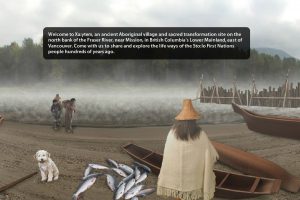Description:
Highly recommended as a useful start to help new Science teachers embed Indigenous perspectives in the classroom. The resource guide is designed for grade five to nine, but applicable to higher grades.

Resources and lessons reflect the First Peoples Principles of Learning.
- Learning ultimately supports the well-being of the self, the family, the community, the land, the spirits, and the ancestors.
- Learning is holistic, reflexive, reflective, experiential, and relational (focused on connectedness, on reciprocal relationships, and a sense of place).
- Learning involves recognizing the consequences of one’s actions.
- Learning involves generational roles and responsibilities.
- Learning recognizes the role of indigenous knowledge.
- Learning is embedded in memory, history, and story.
- Learning involves patience and time.
- Learning requires the exploration of one’s identity.
- Learning involves recognizing that some knowledge is sacred and only shared with permission and/or in certain situations.
